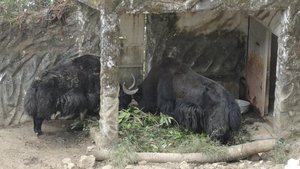Please tell us which country and city you'd like to see the weather in.

Pakistan
Coordinates: 30°N 70°E / 30°N 70°E / 30; 70
Pakistan (![]() i/ˈpækᵻstæn/ or
i/ˈpækᵻstæn/ or ![]() i/pɑːkiˈstɑːn/; Urdu: پاكستان ALA-LC: Pākistān, pronounced [pɑːkɪst̪ɑːn]), officially the Islamic Republic of Pakistan (Urdu: اسلامی جمہوریۂ پاكستان ALA-LC: Islāmī Jumhūriyah Pākistān IPA: [ɪslɑːmiː d͡ʒʊmɦuːriəɪh pɑːkɪst̪ɑːn]), is a country in South Asia. It is the sixth-most populous country with a population exceeding 199 million people. It is the 36th largest country in the world in terms of area with an area covering 881,913 km2 (340,509 sq mi). Pakistan has a 1,046-kilometre (650 mi) coastline along the Arabian Sea and the Gulf of Oman in the south and is bordered by India to the east, Afghanistan to the west, Iran to the southwest and China in the far northeast respectively. It is separated from Tajikistan by Afghanistan's narrow Wakhan Corridor in the north, and also shares a maritime border with Oman.
i/pɑːkiˈstɑːn/; Urdu: پاكستان ALA-LC: Pākistān, pronounced [pɑːkɪst̪ɑːn]), officially the Islamic Republic of Pakistan (Urdu: اسلامی جمہوریۂ پاكستان ALA-LC: Islāmī Jumhūriyah Pākistān IPA: [ɪslɑːmiː d͡ʒʊmɦuːriəɪh pɑːkɪst̪ɑːn]), is a country in South Asia. It is the sixth-most populous country with a population exceeding 199 million people. It is the 36th largest country in the world in terms of area with an area covering 881,913 km2 (340,509 sq mi). Pakistan has a 1,046-kilometre (650 mi) coastline along the Arabian Sea and the Gulf of Oman in the south and is bordered by India to the east, Afghanistan to the west, Iran to the southwest and China in the far northeast respectively. It is separated from Tajikistan by Afghanistan's narrow Wakhan Corridor in the north, and also shares a maritime border with Oman.
The territory that now constitutes Pakistan was previously home to several ancient cultures, including the Mehrgarh of the Neolithic and the Bronze Age Indus Valley Civilisation, and was later home to kingdoms ruled by people of different faiths and cultures, including Hindus, Indo-Greeks, Muslims, Turco-Mongols, Afghans and Sikhs. The area has been ruled by numerous empires and dynasties, including the Indian Mauryan Empire, the Persian Achaemenid Empire, Alexander of Macedonia, the Arab Umayyad Caliphate, the Mongol Empire, the Mughal Empire, the Durrani Empire, the Sikh Empire and the British Empire. As a result of the Pakistan Movement led by Muhammad Ali Jinnah and the subcontinent's struggle for independence, Pakistan was created in 1947 as an independent nation for Muslims from the regions in the east and west of the Subcontinent where there was a Muslim majority. Initially a dominion, Pakistan adopted a new constitution in 1956, becoming an Islamic republic. A civil war in 1971 resulted in the secession of East Pakistan as the new country of Bangladesh.
Paristan (film)
Paristan (Land of Fairies) is a Bollywood fantasy film. It was released in 1944. The film was directed by Mahesh Kaul for Acharya Art productions. It starred Pahari Sanyal, Anjali Devi, Kamal Zamindar, Sunalini Devi, Moni Chatterjee and Padma Bannerjee. The music was composed by Ninu Majumdar and the lyrics were by Roopdas and Ninu Majumdar. This was Mahesh Kaul's second film after Angoori (1943).
Cast
Soundtrack
The film had ten songs with music composed by Ninu Majumdar and the lyrics written by Majumdar and Roopdas. The soundtrack label was Columbia Records.
Song List
References
External links

Dominion of Pakistan
The Dominion of Pakistan (Bengali: পাকিস্তান অধিরাজ্য pakistan ôdhirajyô; Urdu: مملکتِ پاکستان mumlikāt-ē pākistān), commonly called Pakistan, was an independent federal dominion in South Asia that was established in 1947 on the Partition of India into two sovereign countries (the other being the Dominion of India). The dominion, which included much of modern-day Pakistan and Bangladesh, was conceived under the two-nation theory as a home for the Muslims of the former British India. To begin with it did not include the princely states of Pakistan, which acceded slowly between 1947 and 1948. In 1956 it became the Islamic Republic of Pakistan; and in 1971 East Pakistan seceded from the union to become Bangladesh.
Partition of British India
Section 1 of the Indian Independence Act 1947 provided that from "the fifteenth day of August, nineteen hundred and forty-seven, two independent dominions shall be set up in India, to be known respectively as India and Pakistan." India was treated by the United Nations as the successor-state to the former British India. As it was already a member of the United Nations, India continued to hold its seat there and did not apply for a new membership. However, Pakistan was a newly created nation and needed to apply to join. It was admitted as a UN member on 30 September 1947, a few weeks after its independence The British monarch became head of state of the new dominion, with Pakistan sharing a king with the other Commonwealth realms, but the monarch's constitutional roles were delegated to the Governor-General of Pakistan, and most real power resided with the new government headed by Jinnah.

2014 Peshawar school massacre
On 16 December 2014, seven gunmen affiliated with the Tehrik-i-Taliban (TTP) conducted a terrorist attack on the Army Public School in the northwestern Pakistani city of Peshawar. The militants, all of whom were foreign nationals, included one Chechen, three Arabs and two Afghans. They entered the school and opened fire on school staff and children, killing 141 people, including 132 schoolchildren, ranging between eight and eighteen years of age. A rescue operation was launched by the Pakistan Army's Special Services Group (SSG) special forces, who killed all seven terrorists and rescued 960 people. On 2 December 2015, Pakistan hanged four militants involved in the Peshawar massacre.
This was the deadliest terrorist attack ever to occur in Pakistan, surpassing the 2007 Karsaz attack. According to various news agencies and commentators, the nature and preparation of the attack was very similar to that of the Beslan school hostage crisis that occurred in the North Ossetia–Alania region of the Russian Federation in 2004.

2011 NATO attack in Pakistan
The 2011 NATO attack in Pakistan (also known as the Salala incident, Salala attack or 26/11 attacks), was a border skirmish that occurred when US-led NATO forces engaged Pakistani security forces at two Pakistani military checkposts along the Afghanistan–Pakistan border on Saturday, 26 November 2011. Two NATO Apache helicopters an AC-130 gunship and two F-15E Eagle fighter jets entered by varying estimates as little as 200 meters (660 ft) to up to 2.5 kilometres (1.6 miles), into the Pakistani border area of Salala in the Baizai subdivision of Mohmand Agency, FATA at 2 a.m. local time, from across the border in Afghanistan and opened fire at two border patrol check-posts, killing 28 Pakistani soldiers and wounding the 12 others. The two Pakistan Army check-posts were codenamed "Boulder" and "Volcano" respectively. This attack resulted in a deterioration of relations between Pakistan and the United States. The Pakistani public reacted with protests all over the country and the government took measures adversely affecting the US exit strategy from Afghanistan including the evacuation of Shamsi Airfield and closure of the NATO supply line.
Radio Stations - Pakistan
SEARCH FOR RADIOS

Pakistan
Coordinates: 30°N 70°E / 30°N 70°E / 30; 70
Pakistan (![]() i/ˈpækᵻstæn/ or
i/ˈpækᵻstæn/ or ![]() i/pɑːkiˈstɑːn/; Urdu: پاكستان ALA-LC: Pākistān, pronounced [pɑːkɪst̪ɑːn]), officially the Islamic Republic of Pakistan (Urdu: اسلامی جمہوریۂ پاكستان ALA-LC: Islāmī Jumhūriyah Pākistān IPA: [ɪslɑːmiː d͡ʒʊmɦuːriəɪh pɑːkɪst̪ɑːn]), is a country in South Asia. It is the sixth-most populous country with a population exceeding 199 million people. It is the 36th largest country in the world in terms of area with an area covering 881,913 km2 (340,509 sq mi). Pakistan has a 1,046-kilometre (650 mi) coastline along the Arabian Sea and the Gulf of Oman in the south and is bordered by India to the east, Afghanistan to the west, Iran to the southwest and China in the far northeast respectively. It is separated from Tajikistan by Afghanistan's narrow Wakhan Corridor in the north, and also shares a maritime border with Oman.
i/pɑːkiˈstɑːn/; Urdu: پاكستان ALA-LC: Pākistān, pronounced [pɑːkɪst̪ɑːn]), officially the Islamic Republic of Pakistan (Urdu: اسلامی جمہوریۂ پاكستان ALA-LC: Islāmī Jumhūriyah Pākistān IPA: [ɪslɑːmiː d͡ʒʊmɦuːriəɪh pɑːkɪst̪ɑːn]), is a country in South Asia. It is the sixth-most populous country with a population exceeding 199 million people. It is the 36th largest country in the world in terms of area with an area covering 881,913 km2 (340,509 sq mi). Pakistan has a 1,046-kilometre (650 mi) coastline along the Arabian Sea and the Gulf of Oman in the south and is bordered by India to the east, Afghanistan to the west, Iran to the southwest and China in the far northeast respectively. It is separated from Tajikistan by Afghanistan's narrow Wakhan Corridor in the north, and also shares a maritime border with Oman.
The territory that now constitutes Pakistan was previously home to several ancient cultures, including the Mehrgarh of the Neolithic and the Bronze Age Indus Valley Civilisation, and was later home to kingdoms ruled by people of different faiths and cultures, including Hindus, Indo-Greeks, Muslims, Turco-Mongols, Afghans and Sikhs. The area has been ruled by numerous empires and dynasties, including the Indian Mauryan Empire, the Persian Achaemenid Empire, Alexander of Macedonia, the Arab Umayyad Caliphate, the Mongol Empire, the Mughal Empire, the Durrani Empire, the Sikh Empire and the British Empire. As a result of the Pakistan Movement led by Muhammad Ali Jinnah and the subcontinent's struggle for independence, Pakistan was created in 1947 as an independent nation for Muslims from the regions in the east and west of the Subcontinent where there was a Muslim majority. Initially a dominion, Pakistan adopted a new constitution in 1956, becoming an Islamic republic. A civil war in 1971 resulted in the secession of East Pakistan as the new country of Bangladesh.
Latest News for: pakistan's
Gunmen storm five-star hotel in Pakistan, killing at least one
Pakistan attack: One dead after gunmen storm five-star hotel in Gwadar
4 killed as armed militants storm 5-star hotel in Pakistan's Gwadar port city: police
Gunmen, security guard dead after Pakistan forces end hotel attack
Cricket News Live - England, West Indies register victories; Pakistan wondering how to stop Buttler
Balochistan militants claim responsibility for Pakistan hotel attack
Jos Buttler's 50-Ball Ton Sets Up Dramatic Win For England Over Pakistan
Jaish-e-Mohammad linked outfits banned by Pakistan
- 1
- 2
- Next page »






































